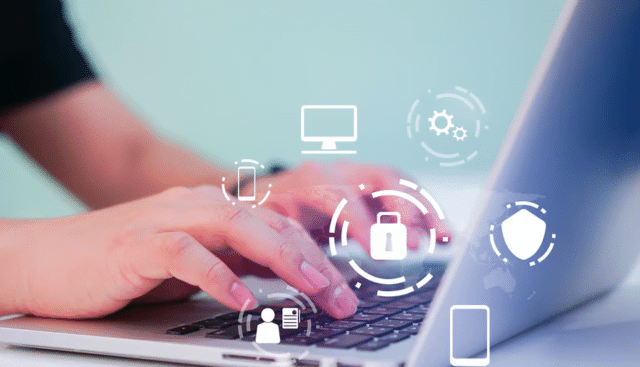Data Security When Working Remotely is quickly becoming the norm as more people discover the benefits of a flexible schedule, like an improved work-life balance. In addition, many people prefer a remote or hybrid work model, and companies must attract top talent. Discover the importance of maintaining data security when working remotely and how to achieve a secure and collaborative work environment.
Focus on Two-Factor Authentication
Table of Contents
Two-factor authentication requires a username, password, and security question or PIN sent to a mobile device to verify the user’s identity. Additional verification processes can be added for further authentication, such as fingerprint or voice recognition. Consider 2FA for remote desktop services to ensure everyone works in a secure environment.
Have a Data Security Policy
As remote work becomes increasingly popular, creating and communicating a data security policy to all team members, including consultants and freelance workers, is crucial. Many people are still unsure about cybersecurity and need a definitive policy to understand the proper protocols. Plus, training helps workers avoid cyber attacks and recognize potential issues before they become significant problems.
Network Security Matters
Working remotely means using cloud applications for data access, collaboration, communication, and more. With everyone working online, using a secure Wi-Fi network is critical to avoid data security breaches. Educating everyone about maintaining security, and using a virtual private network (VPN), helps keep personal data secure.
Manage Passwords Effectively
Because networks require authentication like passwords, keeping strong passwords and changing them periodically is critical to securing private data. As a result, employees should not use the same password for all applications and must vary them to avoid breaches. Also, using a password manager eliminates the challenge of remembering multiple passwords while keeping private corporate data secure.
Learn About Encryption
Remote workers can also protect secure data by using encryption software in case a device is lost or stolen. With encryption, unauthorized users cannot access the device and gain access to private information. Using encryption helps keep private data out of the wrong hands.
Combat Potential Attacks
Finally, it is important to establish ways to combat potential security attacks, including antivirus software, firewalls, and anti-malware on all devices. Employers should work with their team members to verify all devices, including tablets and cell phones, have essential protections installed. Offering technical assistance helps ensure employees have the right protections on their devices to keep company data private.
Stay Ahead of the Curve
The online environment constantly evolves, and management must keep up with the changes to maintain secure remote work conditions. Updating software, adding new applications, and educating employees periodically help protect data security. Work with tech professionals to get the latest information and verify the company follows the latest safety protocols.
Provide Training
Clear policies and training help employees stay on track when working remotely. Continued education and reminders help workers focus on cybersecurity to avoid breaches due to carelessness or lack of knowledge. Teaching your team the correct ways to work remotely save time, effort, and money in the future.
Remote work is increasingly popular because it helps companies connect with top talent and save money on resources such as office facilities. Conversely, workers appreciate having flexible schedules without a time-consuming commute to work. As a result, establishing cybersecurity policies and protocols is critical to protect company data while working remotely.














































